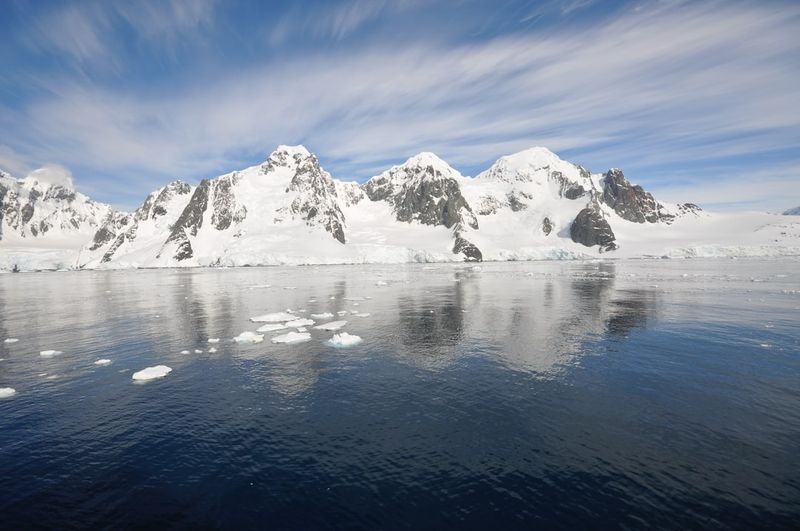Table of Contents
Antarctic Ocean Commission Fails to Agree on Action Plan for Ocean Protection
The Disappointing Stalemate
The Antarctic Ocean Commission, tasked with protecting the waters of the Antarctic, has once again failed to find a way forward in its efforts. Meeting for a special intersessional gathering, only the third in its 41-year history, the Commission aimed to break the deadlock on delivering ocean sanctuaries in the Antarctic. However, despite promises and the urgency of the situation, the Commission’s reliance on consensus-based decision-making has proven to be its Achilles’ heel.
A Broken System
The Antarctic Ocean Commission’s system of consensus decision-making allows any single member state to block progress. Unfortunately, this has been the case repeatedly, effectively hindering the establishment of much-needed protections for the Antarctic’s waters. Greenpeace’s Protect the Oceans campaign coordinator, Chris Thorne, rightfully criticized this flawed system, highlighting how it has prevented the realization of important goals and commitments to preserve our oceans.
Hope in the Global Ocean Treaty
While disappointed by the Commission’s failure, Thorne remains hopeful that change is on the horizon. He notes that the recently adopted Global Ocean Treaty, which permits voting on decisions, presents an opportunity for progress. This treaty enables the creation of ocean sanctuaries on the high seas and serves as a reminder that ocean protection is indeed possible.
The Urgency of Action
Thorne’s comments also highlight a crucial point: time is running out. With less than seven years until 2030, the window of opportunity for taking meaningful action to protect our oceans is rapidly closing. The urgent need for governments to ratify the Global Ocean Treaty by the UN Ocean Conference in 2025 is emphasized. Furthermore, Thorne emphasizes the importance of protecting at least 30% of the oceans by 2030, a target espoused by numerous environmental organizations.
The Way Forward
The failure of the Antarctic Ocean Commission to agree on an action plan for ocean protection is disappointing but not insurmountable. Greenpeace rightly calls for urgent action, including high-level political engagement, to break the longstanding deadlock within the Commission. The two members who have thus far prevented progress must be encouraged to compromise for the greater good.
The Importance of Ratifying the Global Ocean Treaty
Ratifying the Global Ocean Treaty is a critical step towards enabling the establishment of marine protected areas in the Antarctic. This treaty, which allows for voting on decisions, offers a potential solution to the current impasse created by the Commission’s consensus-based decision-making process. Governments must recognize the significance of this treaty and act swiftly to ensure its ratification by the UN Ocean Conference in 2025.
A Philosophical Discussion: Balancing Interests
The failure of the Antarctic Ocean Commission underscores the challenges of balancing national interests with the greater goal of protecting our shared environment. The reliance on consensus decision-making is itself a reflection of the international community’s commitment to inclusivity. However, this approach can be undermined when a small number of states prioritize their own interests at the expense of global well-being.
The Ethics of Ocean Conservation
This stalemate also raises ethical questions surrounding the responsibility of governing bodies to protect the world’s oceans. The oceans are not mere resources to be exploited for profit; they are complex ecosystems that support all life on this planet. Governments have a moral imperative to prioritize the health of the oceans and the long-term sustenance of the planet over short-term economic gains.
The Need for Collective Action
Addressing the failures of the Antarctic Ocean Commission requires a collective effort from governments, international organizations, and civil society. Calls by Greenpeace for high-level political engagement and swift ratification of the Global Ocean Treaty should be heeded by those in power. Additionally, individuals can contribute by supporting organizations that champion ocean conservation and by making sustainable choices in their own lives.
Conclusion
The recent failure of the Antarctic Ocean Commission to agree on an action plan for ocean protection is a reminder of the obstacles we face in safeguarding our oceans. However, with the adoption of the Global Ocean Treaty, there is renewed hope that progress can be made. It is now incumbent upon governments and individuals alike to act swiftly and decisively to protect our oceans for future generations. The time for complacency and inaction is over; the oceans are calling for our attention and care.

<< photo by henrique setim >>
The image is for illustrative purposes only and does not depict the actual situation.